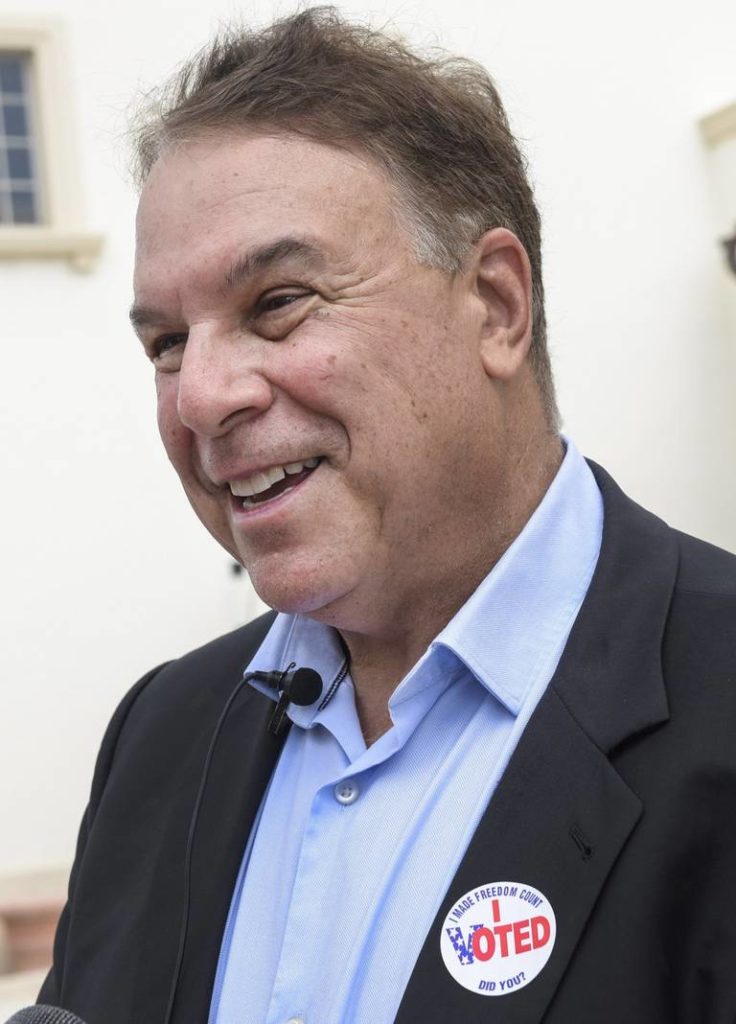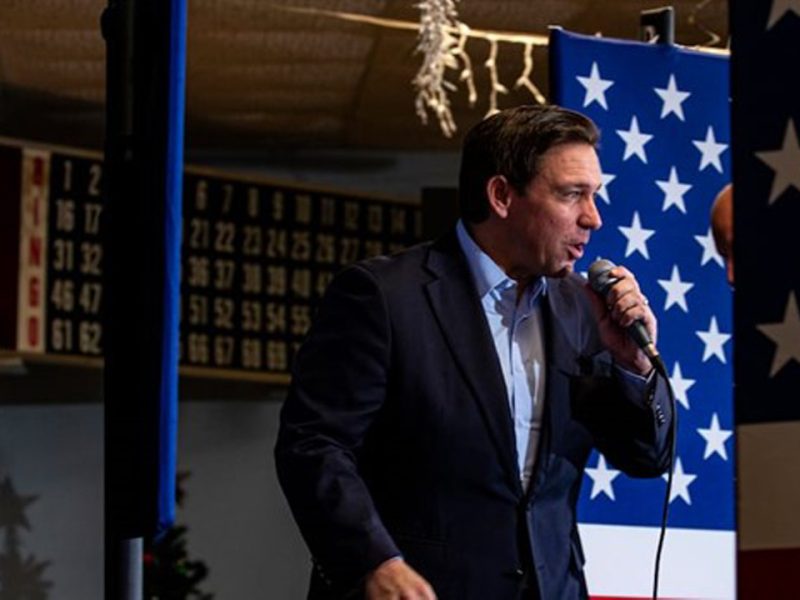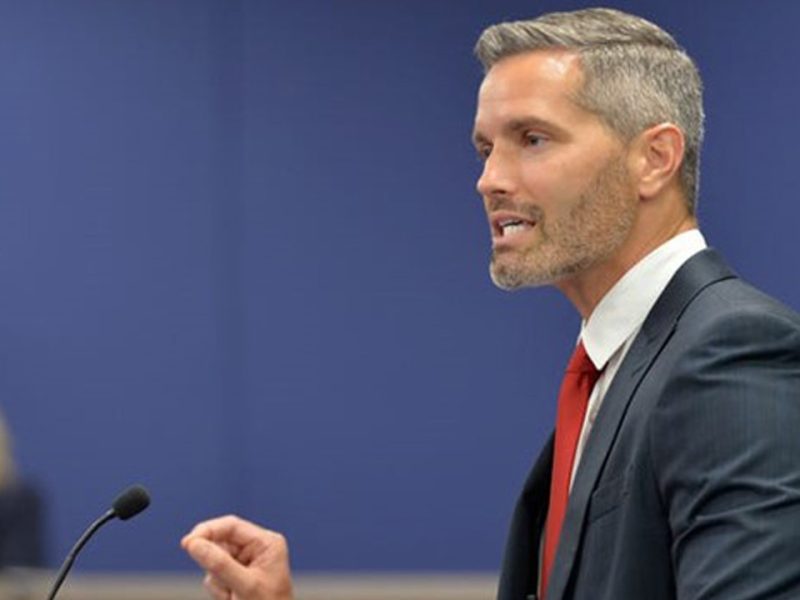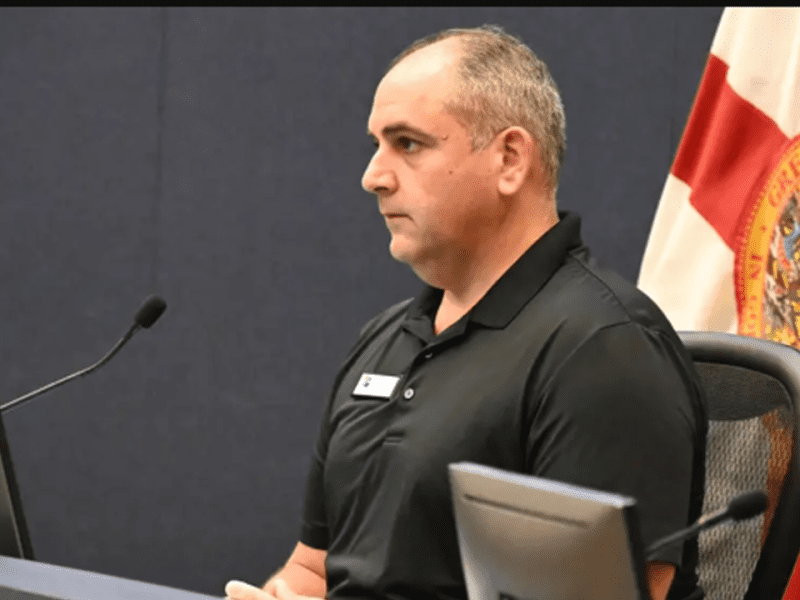Expensive Miami private schools got millions in PPP loans. So did charter schools
Miami Herald | by Colleen Wright | July 21, 2020
Some of Miami-Dade’s wealthiest private schools and publicly funded charter schools are benefiting from millions of federal dollars that are supposed to keep small businesses afloat during the pandemic.
The Paycheck Protection Program is supposed to help “small businesses to keep their workers on the payroll,” according to the Small Business Administration. In reality, big chains like Ruth’s Chris Steak House, which reported receiving $20 million, have benefited. Even the Los Angeles Lakers got approximately $4.6 million, which the team returned.
The Miami Herald found that local private schools have received loans ranging from $2 million to $5 million each. Dozens of public charter schools that are already publicly funded also received or benefited from the loans — a source of funding unavailable to traditional public schools.
But the paycheck loans aren’t the only public funds these schools have received. Some also took advantage of lifelines provided by the federal government through the school district.
The Elementary and Secondary School Emergency Relief Fund, or ESSER, provides $289 per student for a broad use of expenses. The Governor’s Education Emergency Relief Fund, or GEER, provides another $28 per student specifically for summer recovery for learning losses from the disrupted spring semester.
Those funding sources were further expanded in Florida. Gov. Ron DeSantis set aside up to $30 million to ensure voucher-like tax-credit scholarships for low-income students, which keep smaller schools and majority Catholic schools afloat.
DeSantis set aside another $15 million specifically for private schools that have at least 50% of its student body on those state scholarships.
The beneficiaries include some of the most exclusive schools in the region — schools that have big endowments and pay high six-figure salaries.
President Donald Trump and Treasury Secretary Steve Mnuchin have both called on wealthy private schools to return their PPP loans. None of the schools the Herald interviewed said they would return their loans or expressed concern over declining enrollment because of COVID-19.
NOT RETURNING THE MONEY
Scheck Hillel Community School in Northeast Miami-Dade received a $3.627 million PPP loan and applied for $280,333 in ESSER and $12,000 in GEER funding.
The school reported that it retained 263 jobs. The school has 1,160 students — 94 of whom are on government scholarships — and charges $11,340 annually for a half day of Pre-K to $29,400 for high school tuition. That price tag goes up to $35,000 for students with learning differences.
Head of School Vanessa Donaher said in an email to the Herald that the PPP loan was used to cover payroll and saved jobs, “empowering us to keep people employed and at work.”
The former Head of School, Ezra Levy, made $304,263 in 2018, according to the latest publicly available tax forms. At the time, Donaher made $248,858 plus another $30,480 as head of the upper school. All of the other administrators also made six figures.
Donaher said in her email that administrators will not receive pay cuts. She said Scheck Hillel does not meet the criteria referenced by Trump and Mnuchin.
“We are grateful for the PPP loan and are not considering returning it at this time, as the only endowment we have is a restricted fund of less than $1.5 million,” Donaher wrote.
RANSOM HAS $40 MILLION ENDOWMENT
Ransom Everglades School, a waterfront private middle and high school in Coconut Grove, charges more than any other private school in the county for tuition: $41,750 a year. The school has an endowment of $40 million.
Head of School Penny Townsend made a salary of $410,662 in 2018, according to the latest publicly available tax forms. She made another $67,447 that year from other compensation, according to the tax forms.
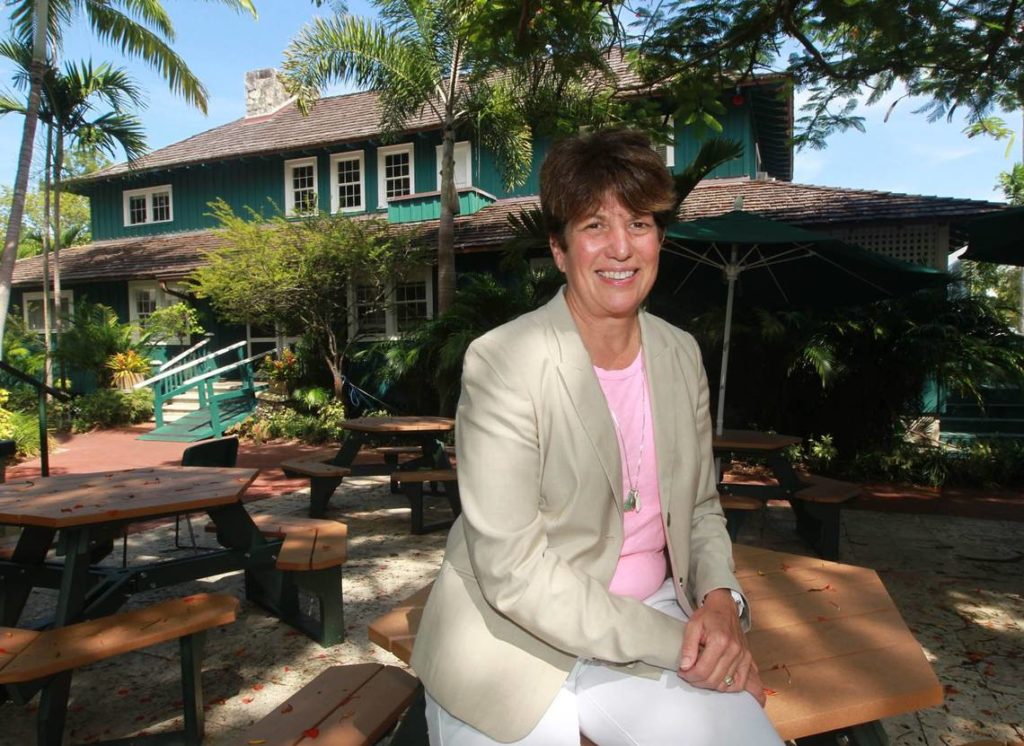
By comparison, Miami-Dade Schools Superintendent Alberto Carvalho — who oversees 392 schools and 345,000 students in the fourth-largest school district in the nation — made $363,461 last school year.
Ransom Everglades received a PPP loan of $2 million to $5 million. School spokeswoman Amy Shipley did not specify the exact amount. She said the school’s administrative staff will not get raises this coming school year.
The school does not accept students on government scholarships and did not apply for ESSER or GEER funds. Shipley said the school is providing $7 million in financial aid to families in 2020-21.
“The PPP funds we received have enabled us to retain all faculty, staff, administrators and coaches — the most important resources at Ransom Everglades School,” she wrote in an email. “We have never previously applied for federal funding and are very grateful it was available in this unprecedented time.”
In West Palm Beach, billionaire real estate developer and former Democratic gubernatorial candidate Jeff Greene founded his own school in 2016 because he and his wife deemed other Palm Beach schools weren’t up to par for their three sons.
The Greene School received a PPP loan of $350,000 to $1 million. Of the 105 students at the school, 40% are on a need-based scholarship. The rest pay between $21,000 to $29,000 a year, which covers organic lunch, a snack, after-school activities and after care.
Greene, who says the school’s board of directors made the call to apply for the loan to remain competitive with other high-end private schools, says the loan is closer to $350,000. He points out that he and his wife have put in $20 million of their money into the school.
“Nobody’s making any money off of this thing. Any losses the school incurs, my wife and I take care of. It’s a little less for us to take care of,” said Greene, who says he’s no fan of how the PPP loan program works. “Every other school is getting it. Why wouldn’t we get it? …You want to keep people employed.”
Catholic schools receive the most government-funded scholarships in Florida. Most, if not all, of the 65 schools in the Archdiocese of Miami also received individual PPP loans.
Some of those same schools also received funding through ESSER and GEER, $860,931 and $135,240, respectively. Those schools are not required to file tax forms because they are connected to a church, which is tax exempt.
ST. THOMAS AQUINAS RECEIVES PPP LOAN
The Archdiocese of Miami itself received between $1 million to $2 million in funds, according to those same records. One of the archdiocese’s most prestigious schools, St. Thomas Aquinas High School in Fort Lauderdale, received a PPP loan worth $2 million to $5 million.
“It was available; it was necessary,” said archdiocese spokeswoman Mary Ross Agosta. “We were eligible and we’ve put the funds to good use.”
CHARTER SCHOOLS RECEIVE PPP LOANS
The Florida Charter School Alliance, a membership organization advocating on the behalf of the vast majority of Florida’s charter schools, put out guidance July 10 on PPP loans and other federal funding available.
“In these uncertain times, organizations applied to ensure they could continue to provide services and not furlough employees,” said executive director Lynn Norman-Teck in a phone interview. She said many schools have a nonprofit arm that runs before-care, after-care and tutoring. Funding also went to hiring substitute teachers and paying overtime for staff working to provide student support.
Charter schools, Norman-Teck wrote in the guidance, “also provided thousands of digital devices to students who didn’t have them. The federal loans allowed them to keep existing staff and cover the new expenses.”
“I think what we have to remember is no one has gone through this before,” she said. “I think people are going to take advantage. They can pay that back but the goal is not to furlough employees and be a resource for the community.”
The Lincoln Marti Community Agency runs three charter schools, eight private schools that accept government scholarships and at least 30 day-care centers and Voluntary Pre-Kindergarten programs in Miami-Dade. The community agency received a PPP loan of $2 million to $5 million and applied for GEER funding for 21 of its school sites.
“The devastating COVID effects have placed non-profit schools and childcare centers in the difficult situation of trying to honor teacher, bus driver and custodian pay, maintaining facilities, paying bills, and really being a true first line resource for families grappling with this awful situation,” wrote founder Demetrio Perez in an email. “Lincoln-Marti Community Agency applied for a PPP loan to help meet the needs of our COVID impacted community. Thanks to this vital program, … we were able to maintain uninterrupted service, including online service, to our community.”
Academica is a for-profit management company that runs dozens of charter schools in Miami-Dade and throughout the state and nation. At least 10 of its schools benefited from PPP loans, ranging from $2 million to $5 million for one school, Doral Academy, to a million or a few hundred thousand dollars per school. The management company itself received a PPP loan of $1 million to $2 million.
Another Academica-run school, Mater Academy, received a $1 million to $2 million PPP loan. The school received a $100 million grant from the federal government in April to open 38 more schools over the next five years.
Sports Leadership and Management, or SLAM! schools, repped by the rapper Pitbull, also benefited from a $1 million to $2 million PPP loan.
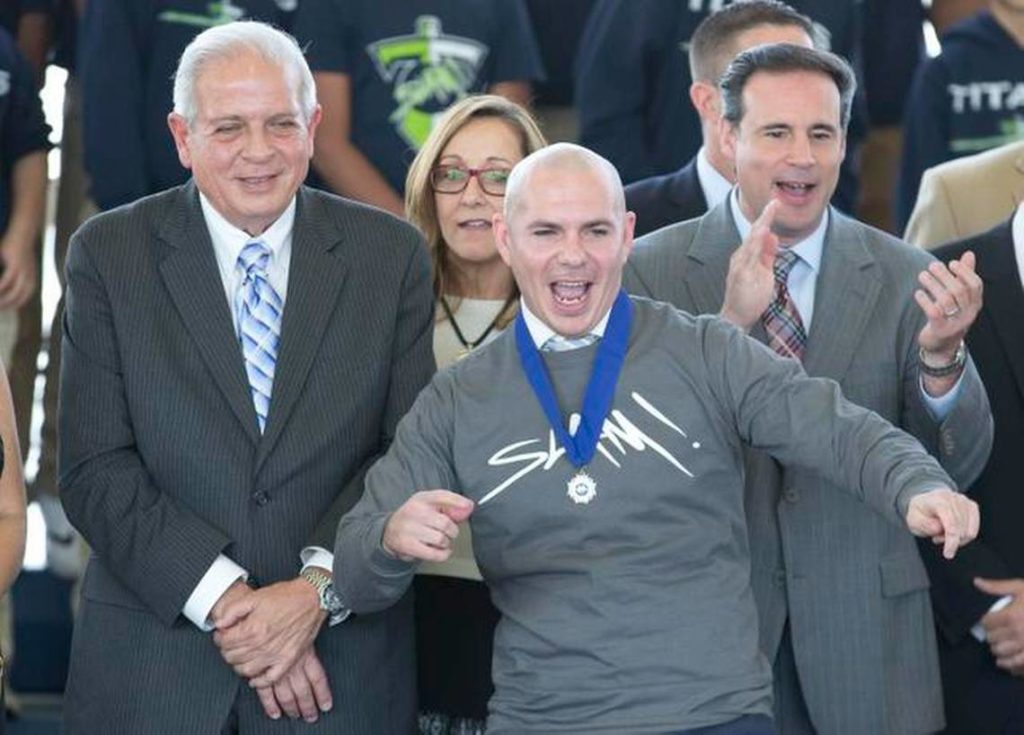
Academica’s founder and president, Fernando Zulueta, said in a text that the pandemic required charter schools to purchase thousands of computers, software, connectivity plans and related equipment.
“Charters had no funding for those unexpected expenses,” he said. “The federal loans allowed them to keep existing staff levels while paying these new expenses. Without the loans, they would have needed furloughs and layoffs to fund those new costs.”
He believes charter schools are at a financial disadvantage compared to district-run public schools because they can’t tap into special property taxes levied by the school district and bond funding.
“It wasn’t a level playing field to begin with,” he said. “And keep in mind that the consequences for a charter school that incurs a deficit are much more severe than for a school district.”
Zulueta is referring to the $1.2 billion general obligation bond that Miami-Dade County voters approved in 2012 and which Miami-Dade County Public Schools promoted. The school district has cited that bond, which included funding for technology, for helping the district quickly pivot to online distance learning in March.
Superintendent Carvalho acknowledged that advantage in an interview, saying that PPP loans for charter schools may “balance out” funding from bonds and other school district levied taxesused by the school district. The district is in a hiring freeze for non-school sites but does not anticipate reducing staff.
CARVALHO: A SHIFT IN FEDERAL FUNDS
“We certainly have seen a shift nationally and in the state toward a much more liberal interpretation of federal fund use, which I think is historic in nature,” Carvalho said, calling it a “seismic shift.”
“Certainly, I would hope that some additional opportunities be open to public school systems that may face the same circumstances or will face the same circumstances.”
At least one charter school managed by the school district, Downtown Doral Charter Upper School, received a PPP loan ranging from $350,000 to $1 million. Carvalho said the district did not apply for that loan on the school’s behalf. Through a spokesman, Head of School Jeannette Acevedo-Isenberg declined to talk to a reporter.
United Teachers of Dade President Karla Hernandez-Mats thinks the “inequitable” sources of funding available for non-public schools are “an excuse for the private industry to continue to raid the coffers of public tax dollars.”
“You can definitely see the disparate treatment here,” she said. “They continue to give more money to [fewer] schools that are over-resourced and not enough money to our schools that are accountable and under resourced.”
The school district received $119 million through ESSER, but will keep $77 million after sharing with private and charter schools. Because the district has a high population of students from low-income families, it received $11 million for GEER but after sharing with those schools, will keep $7.7 million.
The district is allowed to charge an administrative fee of no more than 5% for ESSER since it must procure services for private and charter schools, but cannot charge for administering GEER funds.
The Florida Department of Education wrote in its presentation of these funding sources that recent surveys indicate that close to three-fourths of private schools that accept these scholarships are seeing declines in re-enrollment compared to 2019. It said the same percentage of private schools heard from parents who may not be able to pay tuition for the coming school year.
The department said 121 private schools closed during the peak years of the Great Recession.
